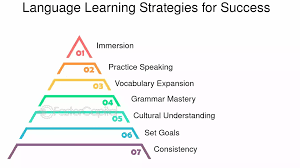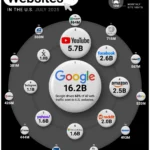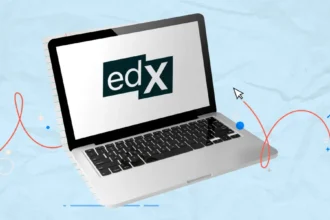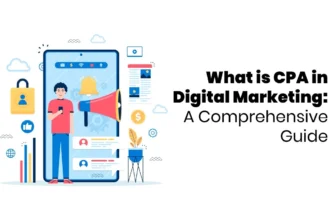In today’s hyper-connected world, the marketplace is no longer confined by borders. Businesses striving for growth are increasingly looking beyond their domestic audience, seeking opportunities in international markets. Yet, a significant barrier often remains invisible but formidable: language. While translation tools have improved dramatically, genuine human connection, cultural nuance, and deep market understanding often require more than automated assistance. This is where the power of bilingualism comes into play, offering marketers a distinct and potent competitive edge. And the most accessible, flexible, and effective way to acquire this edge? Through the vast resources available for language learning online.
The digital age has democratized access to information and education like never before. Gone are the days when learning a new language required expensive tutors or relocating abroad. Today, a world of linguistic knowledge is at your fingertips, available through sophisticated online learning platforms, structured online courses, and even free online learning resources. This post delves into why mastering a second language is becoming less of a personal enrichment goal and more of a strategic business imperative for marketers, and how you can leverage the burgeoning field of online education learning to achieve it.
The Globalization Imperative: Why Your Market is Bigger Than You Think
The statistics paint a clear picture: the internet has dissolved geographical boundaries for commerce.
- E-commerce Growth: Global e-commerce sales continue to surge, reaching trillions of dollars annually. Data suggests this trend is accelerating, driven by increasing internet penetration and mobile commerce (Source: Statista). This represents a massive potential customer base accessible with the right approach.
- Digital Reach: Billions of people are online daily, engaging with content, products, and services from around the globe. Companies that can communicate effectively in their audience’s native tongue immediately gain an advantage in capturing attention and building relationships.
- Emerging Markets: Rapid economic development in various regions presents significant growth opportunities. Tapping into these markets requires understanding not just the economic landscape but also the cultural and linguistic nuances.
Ignoring the language factor means potentially leaving vast swathes of potential customers, partners, and revenue untapped. This isn’t just about selling products; it’s about building brand presence, fostering trust, and competing effectively on a global scale. Mastering language learning online is the key to unlocking this potential.
The Bilingual Marketer’s Advantage: Beyond Translation
Simply translating marketing materials is a rudimentary approach. True market penetration requires a deeper level of understanding that bilingualism facilitates. Here’s how speaking another language gives marketers a significant edge:
1. Deeper Cultural Understanding and Nuance
- Context is King: Language is intrinsically tied to culture. Idioms, expressions, humour, and even the structure of sentences carry cultural weight. A marketer fluent in the local language can grasp these nuances, avoiding potentially embarrassing or offensive missteps that plague purely translated campaigns. This deep dive is often part of advanced online learning courses.
- Cultural Sensitivity: Understanding cultural norms, values, and etiquette is crucial for effective marketing. Fluency allows marketers to tailor messages that resonate authentically, showing respect and building rapport rather than appearing as outsiders imposing their views. Resources like those found on Coursera or edX often include cultural modules alongside language training.
- Interpreting Trends: Staying ahead requires understanding local trends, social media conversations, and consumer sentiment. Being able to access and interpret information in the original language provides a significant advantage over relying on delayed or potentially misinterpreted translations.
2. Building Trust and Rapport
- Personal Connection: Communicating with potential customers or partners in their native language demonstrates effort, respect, and a genuine interest in their market. This fosters trust far more effectively than using a generic, translated message. It transforms a transactional interaction into a relational one.
- Enhanced Credibility: A company that invests in multilingual communication is perceived as more established, serious, and customer-centric. This credibility is invaluable, especially when entering new or unfamiliar markets.
- Improved Customer Service: Providing customer support in the customer’s native language drastically improves satisfaction and loyalty. This direct line of communication can be a major differentiator. Many specialized online learning platforms offer business-focused language modules addressing this need.
3. Unlocking New Markets and Audiences
- Direct Access: Fluency opens doors to markets that may be less accessible through English-dominated channels. This is particularly relevant for regions with high linguistic diversity. Think about the potential in South America, parts of Asia, or Africa.
- Niche Audiences: Within larger markets, language skills can help target specific linguistic communities or diasporas, allowing for highly personalized and effective campaigns.
- Competitive Analysis: Understanding the marketing strategies, messaging, and customer feedback within a target market requires accessing local sources. Bilingual marketers can conduct more thorough competitor research and market analysis.
4. Enhancing Creative and Content Strategy
- Authentic Voice: Crafting marketing copy, social media posts, or video scripts that sound natural and engaging requires linguistic mastery. A fluent marketer can develop content that captures the local ‘voice’ and style.
- Creative Resonance: Humour, wordplay, and cultural references are often language-specific. A bilingual marketer can leverage these elements effectively, creating campaigns that are memorable and impactful. This requires more than basic english learning online; it necessitates deep language and cultural immersion, often supported by advanced online courses australia or international providers.
- Localizing Campaigns: Beyond simple translation, true localization involves adapting campaigns to fit cultural contexts. This might mean changing imagery, adjusting calls to action, or even modifying product positioning – tasks best handled by someone with deep linguistic and cultural understanding.
5. Negotiation and Partnership Building
- Smoother Negotiations: When negotiating deals, contracts, or partnerships, direct communication in the shared language can prevent misunderstandings and build stronger relationships. It allows for a clearer reading of intentions and subtleties.
- Stronger Relationships: Business is often about relationships. Being able to converse comfortably and authentically in a partner’s language fosters goodwill and strengthens the foundation for long-term collaboration.
The benefits of online learning extend far beyond acquiring the language itself; they empower marketers with strategic capabilities that translate directly into business success.
Harnessing the Power of Online Learning Platforms
The digital revolution has placed a wealth of language learning resources online. Whether you’re looking for structured online learning courses, bite-sized lessons, or comprehensive online learning platforms, there’s an option for everyone.
Choosing Your Learning Path:
- Comprehensive Platforms: Services like Coursera, edX, and LinkedIn Learning offer a vast array of language courses, often taught by university professors or industry experts. These platforms provide structured curricula, assignments, and sometimes even certifications. They represent a robust approach to online education learning.
- Specialized Language Apps: Duolingo, Babbel, Memrise, and others offer gamified, accessible ways to learn vocabulary and grammar. They are excellent for daily practice and building foundational knowledge. Some are even focused on specific goals, like learning spanish online or english learning online.
- Immersion-Style Platforms: Pimsleur, Rosetta Stone, and similar programs focus on conversational fluency through audio-based lessons and interactive exercises.
- Tutoring Marketplaces: Platforms connecting learners with native speakers for one-on-one sessions (like italki or Preply) offer personalized feedback and real-time conversation practice. This is invaluable for refining pronunciation and conversational skills.
- Free Resources: Many universities offer free online courses or materials. YouTube channels dedicated to language instruction, language exchange websites, and library resources also provide valuable content. Exploring free online learning platforms can be a great starting point.
Integrating Diverse Learning Tools:
The modern learner often combines resources. You might use Duolingo for daily vocabulary drills, take a structured course on Coursera for grammar and theory, practice conversation on italki, and supplement with content relevant to your field, like business Spanish modules. This multi-pronged approach, facilitated by the flexibility of online learning, accelerates progress.
Think broadly about the scope of online learning. While focused on language, the availability of resources like AI courses online free, learning python, or python learning online demonstrates the vast ecosystem. These technical skills, much like languages, are valuable communication tools in their respective domains. Understanding the benefits of online learning in one area can inspire application in others. Whether it’s maths online, professional development like CPA online learning (for those pursuing accounting credentials like CPA Australia), or even understanding systems like Mobility Online used in academic exchange, the principle of flexible, accessible learning remains.
Some platforms cater to specific needs or age groups, like online learning games for 5 year olds or educational sites such as IXL learning and Scholastic Learning Zone, showcasing the breadth of digital educational tools available. Even platforms like LinkedIn Learning offer courses spanning professional skills, languages, and technical subjects, making it a versatile resource. Consider resources like O’Reilly online learning for technical deep dives, or even specialized centres like Baycare online learning center or Red Cross learning center demonstrating focused online training initiatives. The concept extends to platforms like Alison online learning, offering free certificate courses across various fields.
The “My Online Learning” Experience
Ultimately, the effectiveness hinges on your personal commitment – your my online learning journey. This involves:
- Setting Clear Goals: Why are you learning this language? For marketing a specific region? To understand a particular demographic? Define your objectives.
- Consistency: Regular, even short, study sessions are more effective than infrequent marathon sessions. Make it a daily habit.
- Active Learning: Don’t just passively consume content. Speak aloud, write, practice, engage.
- Immersion: Incorporate the language into your daily life. Change your phone settings, listen to music, watch movies, follow social media accounts in the target language.
This personalized approach is the core of successful online distance learning.
Which Language Should You Learn? A Strategic Approach

Choosing which language to prioritize is a critical decision for marketers. Consider these factors:
- Target Market Potential: Research markets with significant growth potential relevant to your industry or company. Look at economic forecasts, consumer spending, and internet penetration data for specific regions. Data from sources like the World Bank or IMF can be invaluable here.
- Existing Customer Base: Analyze your current international customers. Are there specific language groups that represent a significant portion of your audience? Serving them better might be the first priority.
- Competitive Landscape: Assess where your competitors are focusing their international efforts. Is there an underserved market you could capture by communicating effectively in the local language?
- Resource Availability: Consider the availability and quality of online learning resources for the language you’re considering. While major languages like Spanish, French, Mandarin, or German have abundant options, niche languages might require more specialized platforms.
- Long-Term Value: Some languages offer broader utility. For instance, learning Mandarin opens up mainland China, while Spanish provides access to a vast network of countries across Europe and the Americas. Arabic offers access to the Middle East and North Africa.
While focusing on major global languages is often practical, don’t discount the power of mastering a less common language if it unlocks a highly valuable niche market. The key is strategic alignment with business goals. You might explore resources related to arabic to english translation online or urdu to english translation online not just for tools, but to gauge the market size and interest in those linguistic spheres.
Integrating Language Skills into Your Marketing Strategy
Acquiring language skills is just the first step. The real competitive edge comes from integrating them strategically into your marketing efforts:
- Website Localization: Go beyond simple translation. Adapt content, currency, units of measurement, and imagery to suit the local market. Ensure navigation and user experience are intuitive for native speakers. Use your language skills to guide the process and ensure authenticity.
- Multilingual SEO: Optimize your website content for search engines in different languages and regions. Understanding local search terms and trends is crucial.
- Content Creation: Develop blog posts, social media updates, videos, and ad copy directly in the target language. This ensures cultural relevance and natural-sounding messaging.
- Social Media Engagement: Actively participate in conversations on social platforms within your target market. Respond to comments, run region-specific campaigns, and build a community in the local language.
- Email Marketing: Segment your email lists by language and send targeted campaigns with culturally relevant content and offers.
- Paid Advertising: Run targeted ad campaigns (e.g., Google Ads, Facebook Ads) in the local language, reaching audiences more effectively. Understanding the cultural context helps in crafting compelling ad copy.
- Partnership Outreach: Directly contact potential international partners, distributors, or influencers in their native language to build rapport and facilitate smoother discussions.
- Customer Support: Offer multilingual customer service through chat, email, or even phone support. This significantly enhances customer experience and loyalty.
Think of platforms like Flinders Learning Online or Solent Online Learning as examples of institutional systems designed for specific user groups; apply that focus to your own learning goals for specific markets. Consider the vast array of professional development available, from online learning NSW initiatives to specific skill training like learning python online or even understanding the fundamentals of what is machine learning.
Beyond Spoken Languages: The ‘Languages’ of Technology
Interestingly, the concept of learning a new ‘language’ extends beyond human communication. Marketers increasingly need to understand the ‘languages’ of technology and data.
- Learning Python: Skills like learning python or python learning online are becoming crucial for data analysis, marketing automation, and understanding digital tools. While not a spoken language, Python is a logical language used to communicate instructions to computers. Platforms like Codecademy offer accessible ways to start.
- Understanding Machine Learning: Concepts like what is machine learning, online machine learning, and deep learning are revolutionizing marketing through personalization, predictive analytics, and automation. Acquiring foundational knowledge in these areas, often through dedicated AI courses online free or paid courses on platforms like edX or Coursera, provides a significant advantage.
- Data Analysis Tools: Proficiency with tools and platforms, whether it’s CRM software, analytics suites, or specialized marketing tech, requires learning their specific ‘language’ and logic.
While distinct from linguistic learning, the process of acquiring these technical skills mirrors the benefits of online learning: flexibility, accessibility, and the potential for significant career advancement. The journey involves a similar learning curve, requiring dedication and practice, whether mastering French or understanding algorithms.
Tools vs. Fluency: Finding the Right Balance
Digital tools have made significant strides in bridging language gaps. Google Translate and similar services are incredibly useful for quick translations or understanding the gist of a text. Real-time translation features are becoming integrated into communication platforms.
However, these tools have limitations:
- Lack of Nuance: They often miss cultural context, idioms, humour, and subtle meanings.
- Potential for Errors: Mistakes in translation can range from minor awkwardness to significant misunderstandings or offense.
- Impersonal: Relying solely on tools can make communication feel impersonal and robotic, hindering trust-building.
These tools are best used as aids to supplement genuine language skills, not replace them. A marketer who understands the language can use translation tools more effectively, spotting errors and refining the output. Resources like arabic to english translation online or urdu to english translation online are helpful, but human expertise remains paramount for high-stakes communication.
Overcoming Challenges in Online Language Learning
Embarking on language learning online isn’t without its hurdles:
- Motivation and Consistency: The flexibility of online learning requires self-discipline. Staying motivated over the long term is key. Setting achievable weekly goals, joining online study groups, or finding a language exchange partner can help maintain momentum. This is part of the online learning system effectiveness.
- Lack of Immersion: While online resources are vast, replicating the immersive experience of living abroad can be challenging. Actively creating an immersive environment at home (music, movies, news, speaking partners) is crucial.
- Finding the Right Fit: With so many online learning platforms and online courses, finding the method and resources that best suit your learning style can take time and experimentation. Don’t be afraid to try different approaches.
- Measuring Progress: It can be difficult to gauge your own progress objectively. Utilize online proficiency tests, seek feedback from tutors or native speakers, and set tangible goals (e.g., “Be able to conduct a 15-minute introductory sales call”). Consider learning test online resources.
Remembering the vastness of the online learning universe, from academic platforms like RWTH Online and TUM Online to professional networks like LinkedIn Learning, provides context. Even systems designed for specific administrative tasks, like Unimib Segreterie Online or Erasmus Mobility Online tools like the online learning agreement erasmus, demonstrate the diverse ways digital platforms facilitate interaction and learning.
The Future is Multilingual: Staying Ahead of the Curve
As globalization continues and technology evolves, the importance of language skills for marketers will only intensify.
- AI and Translation: While AI will continue to improve translation technology, it’s unlikely to completely replace the need for human linguistic and cultural expertise in nuanced marketing contexts. AI will become a powerful tool for multilingual marketers. Understanding AI itself, through online machine learning courses, becomes relevant.
- Personalization at Scale: AI enables hyper-personalization, but tailoring messages effectively across different cultures and languages still requires human insight informed by linguistic understanding.
- New Market Dynamics: As new economies emerge and digital access expands, the need to communicate effectively in diverse linguistic landscapes will grow.
Investing in language learning online is not just about acquiring a skill; it’s about investing in future-proofing your marketing career and equipping yourself with a powerful tool for global business success. It’s about understanding the subtle nuances that automated systems miss and building genuine connections across borders.
Conclusion: Your Competitive Edge Awaits
In the competitive landscape of modern marketing, standing out requires more than just innovative strategies; it requires deep understanding and effective communication. Bilingualism, powered by the accessibility and flexibility of language learning online, offers a profound competitive advantage. It allows marketers to move beyond superficial translations, foster genuine trust, navigate cultural complexities, and ultimately, unlock the vast potential of global markets.
Whether you choose a structured path through online learning courses on platforms like Coursera or edX, utilize specialized apps, or connect with tutors online, the journey starts with a single step. Explore the wealth of free online learning resources available, identify your target language based on strategic goals, and commit to consistent practice.
Embrace the power of language. Enhance your cultural intelligence. Differentiate yourself from the competition. Start your language learning online journey today and open the door to a world of opportunity. The tools are available, the need is clear, and the competitive edge is waiting to be claimed.












